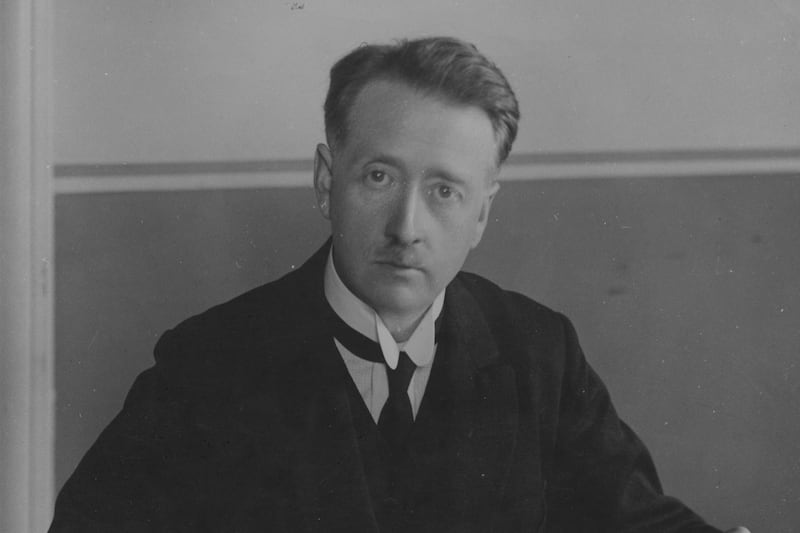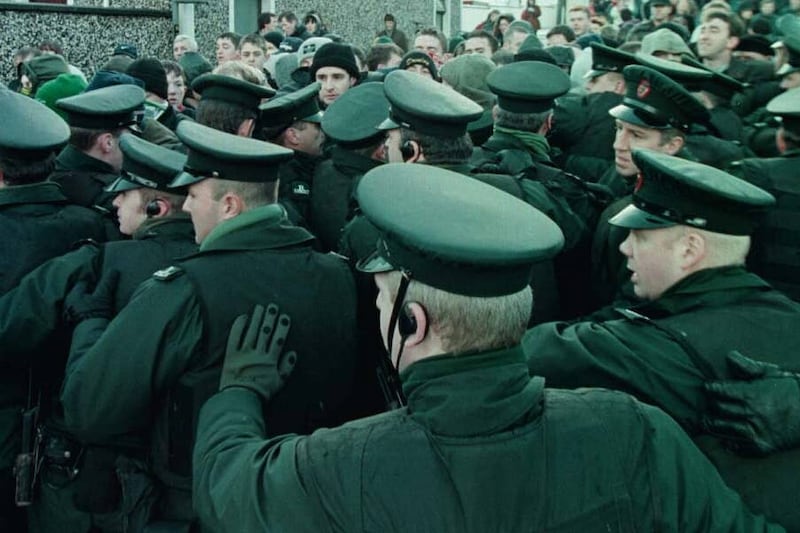January 18 1925
The erection of an unloading platform and a large corrugated covering across the public road at the Bridgend Customs Station on the Derry-Donegal Border is practically complete, and it is proposed to begin the experiment of examining the contents of all receptacles and conveyances crossing the border.
This will probably mean considerable delay to carts and lorries, as it is stated that these will be compelled to discharge and unpack all the goods imported.
If, however, it is found that the scheme works satisfactorily from a Customs point of view, it is expected that the arrangement will be brought into operation at all the other important Customs Stations on the land border of the Free State.
It is stated that this action has been rendered necessary by reason of the smuggling which is alleged to be going on under the existing system of occasional and cursory examination.
While the Boundary Commission was convening to decide on the contours of the border in Ireland, infrastructure around customs posts were adding permanency to the existing border.
***
Trotsky Gives In
It is semi-officially stated that a plenary meeting of the Executive Committee of the Central Commission of the Russian Communist Party was held yesterday by branches of the party regarding the attitude of [Leon] Trotsky.
Trotsky in a letter declared that he himself regarded Trotskyism as over and done with politically.
Trotsky refuted allegations against him and declared himself ready to accomplish any task under any control imposed by the party.
He added: “It is useless to emphasise that after the recent discussions our cause necessitates that I should be relieved of my post of President of the Revolutionary War Council”.
The Executive Council and Central Commission decided almost unanimously to invite Trotsky to submit himself to the discipline of the Party; secondly that his retention of the Revolutionary War Council must be regarded as impossible; and, thirdly, that the question of the further employment of Trotsky in the Executive Committee be postponed until the Congress of the Communist Party, with the warning that disobedience by Trotsky to the Party would result in his removal from the political Bureau of the Executive Committee.
The resolution declared that Trotsky’s anti-Leninist views about the peasants constituted a special danger to the Party, his attitude having undermined peasants’ confidence in the Soviet.
The fall of Trotsky resulted in his expulsion from the Politburo, the Communist Party, exiled from the Soviet Union, culminating in his assassination in Mexico in 1940.








